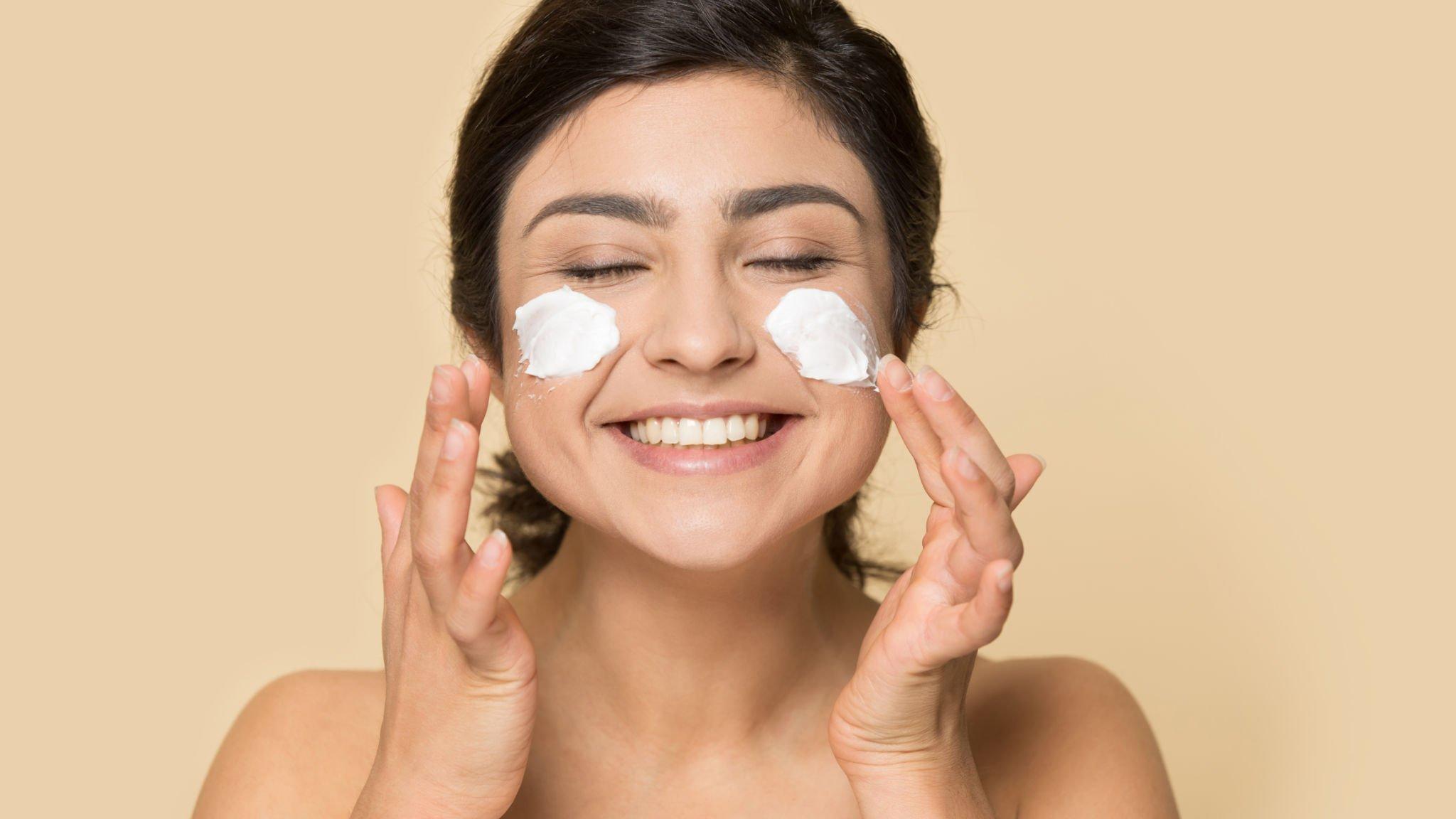
-
Posted By ashutosh@webisarts.com
-
-
Comments 0
Table of Contents
Skin Care Routine: Should It Change with the Season?
As each new season emerges, you may notice that your skin can look and feel a little different, too. Cold winter dry air can make skin feel and look dull, while the humidity that usually accompanies spring and summer can cause it to look clammy. You may wonder whether you should stick to the same skin care routine year-round or change it with the seasons. Since each season brings new temperatures and changes in moisture in the air, it may be beneficial for you to adapt your products accordingly.
Everyone’s skin is different, depending on their skin type and where they live. Here at SkinnFit Medspa, we understand the importance of tailoring your skin care routine to meet your skin’s unique needs. In this comprehensive guide, we’ll explore why the weather affects your skin and offer expert tips on how to best care for it throughout the year. From hot, humid summers to cold, dry winters, we’ve got you covered with the best skincare advice to keep your complexion healthy and glowing in every season. So, let’s dive in and discover how to achieve radiant skin year-round!
Why Does the Weather Have an Effect On Your Skin?
The weather plays a significant role in the health and appearance of your skin. Your skin is exposed to the elements every day, making it susceptible to the effects of weather changes. During hot and humid summers, your skin’s oil production increases, leading to a buildup of sweat and oils that can clog pores and result in breakouts. Conversely, cold, and dry winters can strip your skin of its natural oils, causing dryness, irritation, and even cracking.
When the weather is hot and humid, your skin responds by increasing oil production, often resulting in a shiny complexion. Conversely, cooler weather, especially when accompanied by low humidity, can lead to accelerated moisture evaporation from your skin, leaving it dry and parched.
Expert Opinion
Aesthetic Physician and Founder of Medspa, Dr. Ruby Sachdev says that each season brings its own set of environmental factors that affect our skin. Summer’s increased sun exposure can cause UV damage and exacerbate oil production, while fall and winter introduce cold, dry air that can lead to dehydration and flakiness.
Understanding how the weather impacts your skin is crucial for developing a seasonal skin care routine that addresses these specific concerns. By adapting your skincare regimen to accommodate changes in weather conditions, you can better protect and nourish your skin year-round, ensuring a healthy and glowing complexion.
Understanding Seasonal Skin Change Understanding Seasonal Skin Changes Your skin is a dynamic organ that responds to various environmental factors, and understanding how it reacts to seasonal changes is essential for maintaining its health and vitality.
Factors influencing seasonal skin changes:
Temperature and Humidity: The temperature and humidity levels fluctuate with each season, directly impacting your skin’s moisture balance. In cold, dry winters, the lack of moisture in the air can lead to dehydration, causing your skin to feel tight and parched. Conversely, hot and humid summers can stimulate increased oil production, resulting in a greasy complexion. Adjusting your skin care routine to provide adequate hydration in the winter and mattifying products in the summer can help keep your skin balanced.
Sun Exposure: The intensity and duration of sun exposure vary throughout the year, with summer exposing your skin to stronger UV rays. Sun protection becomes paramount during this time to prevent sunburn, premature aging, and skin cancer. However, it’s crucial to remember that even in winter, the sun’s rays can still cause damage, albeit to a lesser extent. Incorporating broad-spectrum sunscreen into your daily routine ensures year-round protection against harmful UV radiation.
Wind and Pollution: Windy and polluted environments can exacerbate skin issues and compromise its barrier function. The wind can strip away natural oils, leaving your skin vulnerable to dryness and irritation. Additionally, pollution particles can clog pores and contribute to inflammation, leading to acne and premature aging. Shielding your skin with a protective barrier, such as a moisturizer or sunscreen, can help mitigate these effects and maintain its health.
Lifestyle Factors: Your lifestyle and daily habits may also influence how your skin behaves throughout the seasons. Increased outdoor activities during the summer can expose your skin to environmental stressors like sweat and dirt, necessitating thorough cleansing and exfoliation. Furthermore, dietary changes, such as consuming more hydrating fruits and vegetables in the summer, can support your skin’s hydration levels and overall health.
Throughout this article, the importance of understanding the skin care routine is emphasized, as it helps individuals make informed decisions about their skincare routines. With customizable options and expert guidance, HydraFacial offers a versatile and effective solution for a wide range of skin concerns.
Experience the Best Skin Treatment in Bangalore at Skinnfit Medspa
At Skinnfit Medspa, we specialize in a wide range of skin treatments in Bangalore, from chemical peels and laser therapies to anti-aging solutions and acne management. Dr. Ruby Sachdev’s expertise ensures you receive the highest quality care for visibly improved skin health and beauty.
Skincare Tips for Different Seasons
Now, let’s delve into specific tips for caring for your skin throughout the year:
- Summer Season
During the summer months, our primary focus should revolve around shielding our skin from the harmful effects of the sun’s rays and managing the increased oil production. According to the Journal of the European Academy of Dermatology and Venereology, sweating more due to hot conditions raises moisture levels, sebum secretion, and greasiness while lowering skin pH. Dr. Ruby Sachdev at Skinnfit Medspa highlighted, “Lightweight, oil-free moisturizers and broad-spectrum sunscreens become essential to shield the skin from UV damage. Also, incorporating antioxidants can help combat free radicals caused by sun exposure.”
- Autumn Season
As autumn approaches and temperatures begin to cool, our skin’s moisture barrier may start to weaken. Dr. Ruby Sachdev said, “To counteract this, opt for richer moisturizers that provide hydration and help maintain the skin’s protective barrier. Exfoliation becomes crucial to remove dead skin cells that accumulate during the summer, revealing a fresh complexion underneath.”
- Spring Season
Spring is a time of renewal, and your skincare routine should reflect that. Focus on exfoliating away dead skin cells to reveal a fresh, glowing complexion underneath. Look for gentle exfoliants like alpha hydroxy acids (AHAs) or beta hydroxy acids (BHAs) to slough away dullness without causing irritation.
- Winter Season
Cold winter air can lead to dryness, sensitivity, and even eczema flare-ups. According to the Journal of the Mechanical Behaviour of Biomedical Materials, skin firmness and elasticity were lower in the winter. In Skinnfit Medspa, Dr. Ruby Sachdev added, “A skincare routine during this season should prioritize deep hydration using heavier moisturizers and hydrating serums. Consider incorporating products with ingredients like hyaluronic acid and ceramides to lock in moisture.” Don’t forget to protect your skin from harsh winds and cold temperatures by wearing a scarf or mask when outdoors and consider using a humidifier indoors to add moisture to the air.
Adapting your skincare to the changing seasons ensures that your skin remains healthy, balanced, and radiant throughout the year. With these expert tips, you can navigate seasonal transitions with ease and maintain a glowing complexion no matter what Mother Nature throws your way.
Conclusion
Your skin reflects your overall health and well-being, and it’s crucial to care for it year-round. By adapting your skincare routine to the changing seasons and paying attention to your skin’s needs, you can maintain a healthy, radiant complexion regardless of the weather. Consistency is key, so stick to your skincare regimen and adjust it as necessary to keep your skin looking its best.
Dr. Ruby Sachdev, a renowned Aesthetic Physician and Founder of SkinnFit Medspa in Bengaluru, emphasizes the importance of a tailored skincare routine. With her expertise and guidance, you can address seasonal changes and achieve your skincare goals effectively.
Whether it’s protecting your skin from UV damage in the summer or combating dryness in the winter, our team of expert estheticians is here to help.
Schedule a consultation today to receive personalized skincare recommendations and take the first step towards healthier, happier skin! Remember, your skin deserves the best care.
In this article, the significance of maintaining a consistent skincare routine throughout the seasons is highlighted to ensure optimal skin health and appearance.
Frequently Asked Questions
The general rule of thumb for a skin care routine is to follow this sequence: cleanse, tone, treat, moisturize, and apply sunscreen during the day. Cleansing removes dirt, oil, and impurities, while toning helps balance the skin’s pH levels. Treatment products, such as serums or spot treatments, target specific concerns like acne or aging. Moisturizers hydrate and protect the skin, while sunscreen shields against harmful UV rays.
It’s essential to cleanse your face both in the morning and at night. In the morning, cleansing removes any sweat, oil, or impurities that have accumulated overnight. At night, cleansing removes makeup, sunscreen, dirt, and pollutants that have built up throughout the day. Choose a gentle cleanser appropriate for your skin type to avoid stripping away essential oils.
Yes, you can layer multiple skincare products, but it’s essential to follow the correct order and allow each product to absorb fully before applying the next one. Start with lighter, water-based products and finish with heavier, oil-based ones. Avoid overloading your skin with too many products, as this can lead to irritation or clogged pores.
Determining the right skin care routine involves understanding your skin type (e.g., oily, dry, combination) and specific concerns (e.g., acne, aging, hyperpigmentation). Consult with a dermatologist or skin care professional to assess your skin’s needs and develop a personalized routine tailored to address your concerns effectively.
While mixing skincare products may seem convenient, it’s essential to consider compatibility and efficacy. Some products may work well together, while others can cause irritation or negate each other’s benefits. It’s best to follow the recommended usage instructions for each product and layer them individually for optimal results. If unsure, consult with a skincare expert for guidance on product compatibility.
In this guide, we’ve addressed common questions about skincare routines to help you establish an effective regimen tailored to your skin’s needs.



